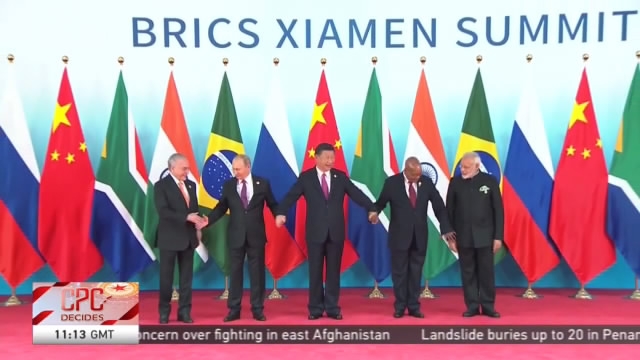
19:37, 21-Oct-2017
19th CPC National Congress: Border dispute dampens China-India ties

China's relationship with India has entered a new phase after the two sides resolved a recent standoff in the Doklam area of China. CGTN's Ravinder Bawa spoke to some experts to understand how the recent deadlock calls for a re-evaluation of existing bilateral agreements.
China-India borders are calm for over a month now. Both the countries agreed to disengage their border personnel on 28th August this year, after a two and half month long standoff. This deadlock lead to a setback in the texture of relationship between the two countries. But will it change the way the two countries engage with each other here on?
JABIN JACOB ASSOCIATE PROFESSOR, INSTITUTE OF CHINESE STUDIES "Relations have not been good in the last couple of years. Since the relation started with promise but in the last couple of years things have gone bad. While there are tensions but the two courtiers understand that on a practical level it is important to engage how the governments do that, despite political tensions every now and then is a question. Things can improve but both sides have to consider each other's interest more carefully, more closely. "
The ice was broken after a meeting between Chinese President Xi Jinping and Indian Prime Minister Narendra Modi in Hamburg on the sidelines of the G-20 summit. The two countries have bilateral agreements to govern border disputes. But analysts say it is time to reassess these agreements ased on changed ground realities.
JABIN JACOB ASSOCIATE PROFESSOR, INSTITUTE OF CHINESE STUDIES "Today you see the context. Both countries are resourceful to build infra at the border. They have ambitions. Their political leaders are ambitious so it is time to relook and take into account the changed realities at the border. "
MANOJ JOSHI FELLOW, OBSERVER RESEARCH FOUNDATION "we have been able to maintain peace and tranquility on the border through cbm but after doklam it seems some of them are nt working and the higher leadership should apply to evolve new mechanisms to prevent situation like Doklam from arising."
Experts say that this relationship cannot be looked at as black or white. These two countries have a lot of potential to build stronger ties and for this the political leaderships have to explore the areas, which are untouched and use a lot of soft power to change perceptions. Ravinder Bawa, Delhi.

SITEMAP
Copyright © 2018 CGTN. Beijing ICP prepared NO.16065310-3
Copyright © 2018 CGTN. Beijing ICP prepared NO.16065310-3